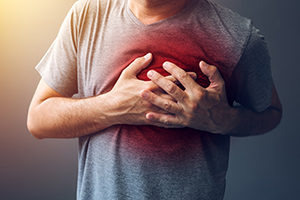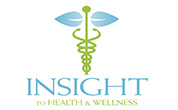Cardiac Arrhythmia Treatment in Vanderbilt Beach - North Naples, FL

If what once were regular activities – running up the stairs, carrying groceries – have been causing rapid heartbeat, slow heartbeat, or chest pain lately, you may have cardiac arrhythmia: rapid, slow, or irregular heartbeat.
Most heart arrhythmias aren’t dangerous conditions, though certain risk factors like previous heart complications can make arrhythmia much more serious. A physician can check your arrhythmia to rule out or diagnose an underlying health condition.
To speak with a cardiac arrhythmia specialist in Vanderbilt Beach - North Naples today, call (941) 845-6555 or contact Insight to Health & Wellness, Inc. online.
What are the symptoms of cardiac arrhythmia?
Many arrhythmias cause no signs or symptoms. Common symptoms of arrhythmia include:
- fluttering in your chest
- racing or slow heartbeat
- chest pain
- shortness of breath
- lightheadedness or dizziness
- sweating
- fainting or feeling faint
Even if an arrhythmia is discovered, it’s often not a symptom of a serious medical problem. If you get these symptoms often or experience two or more at the same time, seek emergency medical attention immediately; someone with ventricular fibrillation will collapse, stop breathing, and quickly lose pulse.
Types of arrhythmia
Ventricular arrhythmias occur in the lower chambers of the heart (ventricles) and include:
- ventricular tachycardia: heartbeat nerve signals pass along an abnormal route, causing a quickened heartbeat
- premature ventricular contractions: when the ventricles contract too soon and out of sequence with the normal heartbeat
- ventricular fibrillation: the most dangerous kind, in which several simultaneous nerve impulses causes an uncontrolled, irregular beat
Supraventricular arrhythmias occur in the area above the ventricles, usually in the upper chambers of the heart (atria):
- paroxysmal supraventricular tachycardia: when electrical signals in the heart’s upper chambers fire abnormally
- atrial fibrillation: single muscle fibers in the heart twitch or contract in a fast, irregular rhythm
- Wolff-Parkinson-white: extra muscle pathways between the atria and the ventricles cause the signals to arrive at the ventricles too soon, and then returned to the atria
- atrial flutter: when the atria beat very fast, causing the ventricles to also beat fast
- premature supraventricular contractions: when the atria contract too soon, causing the heart to beat out of sequence
- postural orthostatic tachycardia syndrome: the blood vessels in the lower body do not tighten during standing
- heart block: nerve signals do not travel as quickly as they should
What causes cardiac arrhythmia?
Causes of arrhythmia include:
- heart attack, or scarring of heart tissue from a previous heart attack
- diabetes
- blocked heart arteries
- high blood pressure
- overactive or underactive thyroid gland
- smoking
- overconsuming alcohol or caffeine
- drug use
- stress
- over-the-counter cold and allergy medications
- sleep apnea
- genetic factors
Prevention: lifestyle changes and home remedies
The following heart-healthy lifestyle adjustments may minimize your chances of developing or intensifying existing arrhythmia:
- regular exercise
- smoking cessation
- increasing your intake of heart-healthy foods low in salt and fat, like fruits, vegetables, and whole grains
- maintaining a healthy weight
- keeping healthy blood pressure and cholesterol levels
- drinking alcohol in moderation
- avoiding over-the-counter cold and allergy medications and drugs
How is cardiac arrhythmia diagnosed?
Diagnosing arrhythmia typically begins with a physical examination. Your physician will discuss your medical history and symptoms and review any medications or other potential triggers.
Your healthcare provider will likely recommend tests like:
- electrocardiogram (ECG): detects your heart’s electrical activity to measure the timing and duration of each heartbeat’s electrical phase
- Holter monitor: a portable ECG device you wear to record your daily heart activity
- event monitor: a portable ECG device activated during symptoms
- echocardiogram: a hand-held device placed on your chest to produce sound wave-generated images of your heart’s size, structure, and motion
- implantable loop recorder: a small device implanted under your skin to detect abnormal heart rhythms
If no arrhythmias are found, further testing may include a stress test, as well as a tilt table test and electrophysiological testing and mapping. For the former, you’ll lie flat on a table so your physician can elevate the table to specific angles to analyze your blood pressure and heart rate. For the latter, thin tubes tipped with electrodes are placed through your blood vessels to map the spread of electrical impulses through your heart.
Arrhythmia treatments
Medications
If you have chest pain and high or low blood pressure with your arrhythmia, your physician may prescribe a calcium channel blocker. These dilate your blood vessels and slow your heart rate to reduce your risk of arrhythmia. Calcium channel blockers include amlodipine (Norvasc), diltiazem (Cardizem, Tiazac), and nicardipine (Cardene SR).
Anti-arrhythmic drugs like amiodarone are most common. Their side effects may include: rapid heart rate, constipation, dizziness, headaches, fainting, and more irregular heartbeat.
Beta blockers can disrupt the hormone adrenaline, treating an abnormally rapid heart rate. Beta blockers include acebutolol (Sectral), bisoprolol (Zebeta), and nadolol (Corgard), and side effects include tiredness, cold hands, headache, stomach issues, and constipation.
Blood thinning drugs (anticoagulants) can prevent the formation of blood clots. Side effects of anticoagulants include an increased risk of internal bleeding, which may present as bloody stool, multiple bruises, and coffee ground-looking vomit.
Integrative therapies
FDA approved Acupuncture therapy has been shown in decades worth of studies to be a safe, effective therapy for conversion of paroxysmal atrial fibrillation and atrial flutter.
One study even compared acupuncture to amiodarone. The subjects receiving acupuncture at 3 acupoints had an 85% total effective rate, while the amiodarone group had a 67.5% total effective rate. The only side effects reported: swelling around the needle site.
Supplement and herb treatments include:
- omega-3 fatty acids: found in fish or fish oil, can help prevent arrhythmias
- vitamin C and E: can reduce oxidant stress and inflammation associated with heart conditions
- potassium: maintains normal heart function and transmits nerve signals to heart muscles
- magnesium: maintains nerve function
- hawthorn extract: improves amount of blood pumped out of the heart during contractions, widens the blood vessels, and increases of nerve signal transmission
Talk to your physician before choosing the best treatment, as attempting more than one method simultaneously can cause serious problems. For example, you may suffer bleeding if fish oil is taken with medications like warfarin. Side effects of too much potassium may include rash, nausea, and diarrhea, and too much magnesium can cause dizziness, blurred vision, and breathing problems.
Certain supplements can cause arrhythmia and should be avoided: cola nut, guarana, ephedra, and creatine.
Slow Heartbeat Device
A pacemaker is a small device surgically implanted near your collarbone. If your heart rate slows or stops, the pacemaker sends electrical impulses that steady it. Side effects of a pacemaker surgery include blood clots, damage to the heart or blood vessel, infection, and swelling or bruising of the implantation site.
Fast Heartbeat Device
Fast heartbeat treatments may include arrhythmia medication to control your heart rate or restore a normal heartbeat. These medications include amiodarone (Cordarone), flecainide (Tambocor), and propafenone (Rythmol). There is a risk that these medications can cause your arrhythmia to occur again or more frequently.
Other treatments for quick heartbeat include:
- electric cardioversion: sends electrical shocks to your chest through paddles or patches to restore normal rhythm
- vagal maneuvers: certain body movements like holding your breath and straining, plunging your face into ice water, or coughing can slow or stop arrhythmias
- catheter ablation: catheters are inserted through the blood vessels leading to your heart, and uses heat, cold, or radiofrequency waves to damage a small area of your heart tissue, creating an electrical blockage in the pathway that causes your arrhythmia
The success rate of cardioversion for atrial fibrillation is generally better than 90%. While electrical cardioversion is effective at converting the heart back into normal sinus rhythm, it has a low success rate in keeping it there. It also doesn't cure AFib.
Side effects of these treatments include dislodged blood clots, abnormal heart rhythms, and burnt skin from cardioversion, and damage to the arteries, nerves, and heart from cardiac ablation.
Implantable device
In some cases, your healthcare provider may advise implanting a device, such as a pacemaker or an implantable cardioverter-defibrillator (ICD) to help manage arrhythmias.
An ICD is a small battery-powered unit similar to a pacemaker that’s implanted near your collarbone. Wires run from the device to your heart, monitoring your heart rate and normalizes any abnormal heart rhythms. An ICD is typically used if you’ve had sudden cardiac arrest or are at risk of cardiac arrest. Side effects of the implantation procedure include infection, bleeding, blood vessel damage or blockage, and organ damage.
Surgical procedures
If your condition hasn’t responded to other treatments, surgical solutions include:
- maze procedure: a pattern of surgical incisions is made in your heart’s upper half, creating scar tissue that can’t conduct electricity; side effects include bleeding, pain, fluid retention, infection, stroke, and pneumonia
- coronary bypass: this increases blood flow to your heart; may be best if you have coronary artery disease with arrhythmia
Side effects of coronary bypass surgery include discomfort, itching, or swelling at the operation site and muscle pain or tightness. Complications of coronary bypass include infection, bleeding, fever, and in extreme cases, heart attack or death.
As with any medical procedure, results vary from patient to patient, depending on age, genetics, condition severity, as well as environmental and health factors. Consult your healthcare practitioner before embarking on your treatment journey.
Reserve Your Appointment Now
Many heart arrhythmias aren’t a medical concern, but if you’ve had a previous heart complication or if you just discovered your arrhythmia, you should get it checked out. To speak with a cardiac specialist today in Vanderbilt Beach - North Naples, call (941) 845-6555 or contact Insight to Health & Wellness, Inc. online.
Insight to Health & Wellness, Inc.
Address
694 8th Street NorthNaples, FL 34102
(941) 845-6555
www.insight2hw.com

